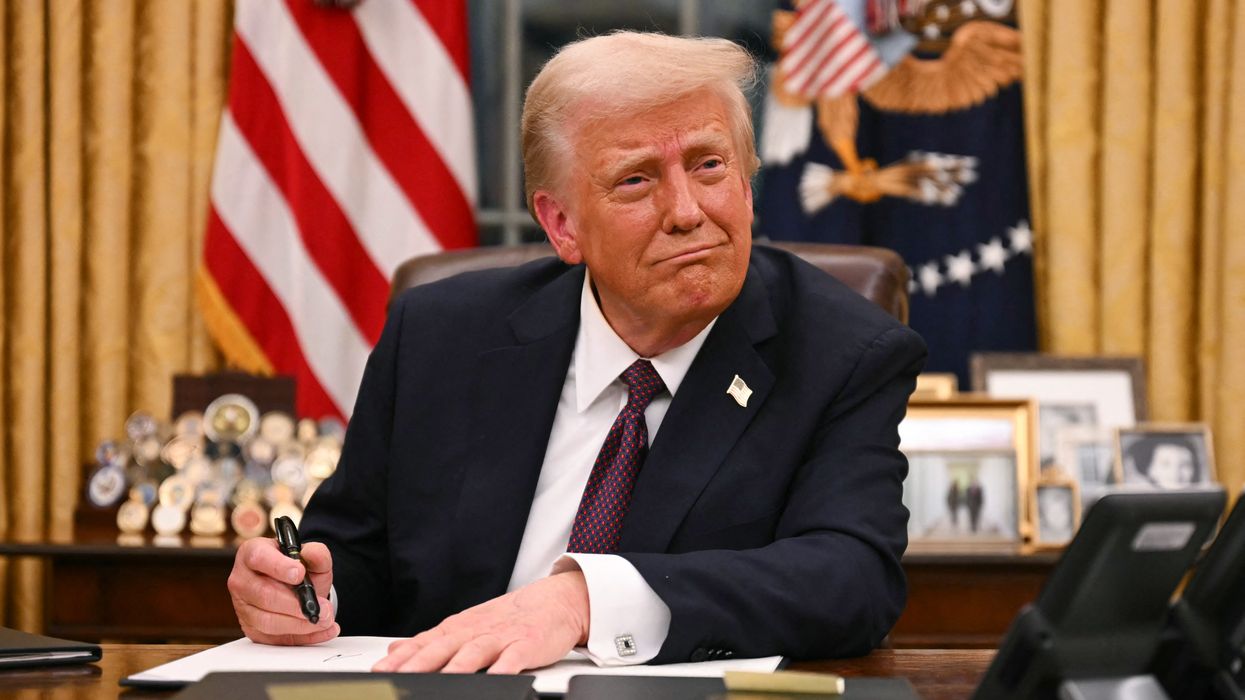The UK and other global economies reacted on Thursday to US president Donald Trump's newly imposed tariffs, with prime minister Keir Starmer warning of an “economic impact” from the 10 per cent levy on British exports.
Trump announced a series of tariff increases targeting various nations, including key US allies such as the UK and the European Union.
The measures include a 25 per cent tariff on foreign-made cars and light trucks, with auto parts set to be affected from 3 May.
For the UK, a 10 per cent tariff will take effect on Saturday, with higher duties on some goods beginning on 9 April.
Starmer acknowledged that Britain had secured a relatively lower tariff than the EU but warned of its consequences.
"Clearly, there would be an economic impact," he told business leaders at Downing Street, adding that his government would seek the best possible trade outcome.
Speaking in the White House Rose Garden on Wednesday, Trump described the move as a historic step for the US economy. “It’s our declaration of economic independence,” he said, holding up a chart of the new tariffs.
The announcement led to sharp reactions from international leaders. European Commission president Ursula von der Leyen called the tariffs a "major blow to the world economy" and said the EU was "prepared to respond."
China also criticised the decision, warning that it could “endanger” global economic growth.
Stock markets responded negatively, with Tokyo’s Nikkei closing 2.8 per cent lower and Hanoi’s index dropping more than seven per cent after Vietnam was hit with a 46 per cent tariff.
In Europe, Frankfurt’s index fell 2.2 per cent, and US futures declined as investors moved towards safe-haven assets like gold.
Trump justified the measures by targeting what he described as "nations that treat us badly."
This included an additional 34 per cent tariff on Chinese goods, bringing the total added levy to 54 per cent.
China responded with a warning of countermeasures and called for dialogue. The European Union faces a 20 per cent tariff, while Japan is subject to a 24 per cent levy, which its trade minister called “extremely regrettable.”
The response within the EU varied. The French government suggested retaliatory taxes on US tech firms, while Italy’s prime minister Giorgia Meloni called the tariffs on Europe “wrong” but expressed hope for negotiations. Germany said it favoured a negotiated solution.
Canada and Mexico are not affected by the new measures, as Trump has previously imposed separate trade penalties on them over drug trafficking and immigration concerns.
Canadian prime minister Mark Carney, however, said his country would continue to "fight" against existing US tariffs.
Trump, who has long supported tariffs as a tool to address US trade imbalances, dismissed concerns about market instability.
“For decades, our country has been looted, pillaged, raped and plundered by nations near and far, both friend and foe alike,” he said.
A White House official stated that certain goods, including copper, pharmaceuticals, semiconductors, lumber, and gold, would not be subject to the tariffs.
Speaking about Britain’s position, business secretary Jonathan Reynolds noted that the UK fared slightly better than its European neighbours.
“I recognise the announcements by the president last night put the UK in a relatively better position than, for instance, the EU,” Reynolds told Sky News. However, he added that the 10 per cent tariff was still "a disappointment."
Following Trump’s announcement, the British pound rose one per cent against the US dollar, reaching $1.3139, as the dollar weakened against other major currencies.
Starmer emphasised that trade talks with the US would continue. “We have a range of levers at our disposal,” he said, adding that while Britain’s aim remains securing a trade deal, “nothing is off the table.”
(With inputs from agencies)





